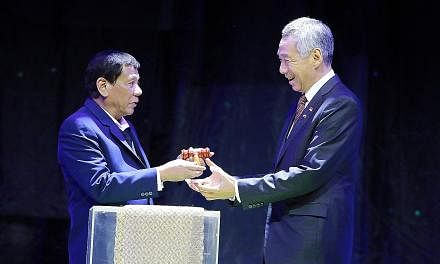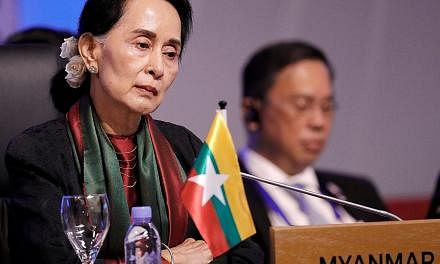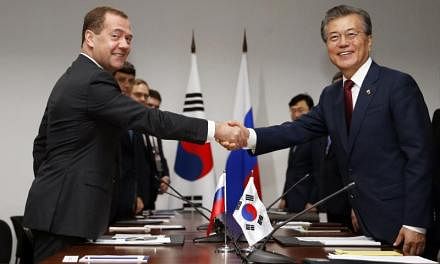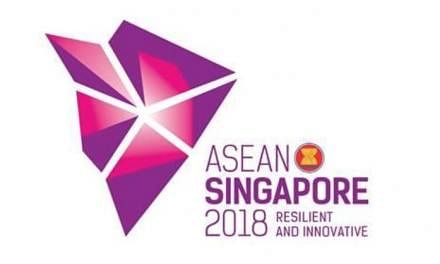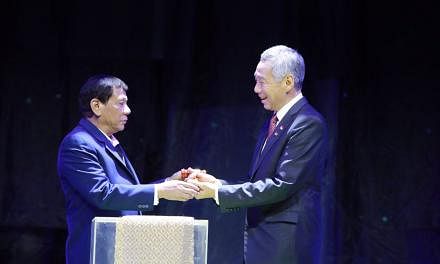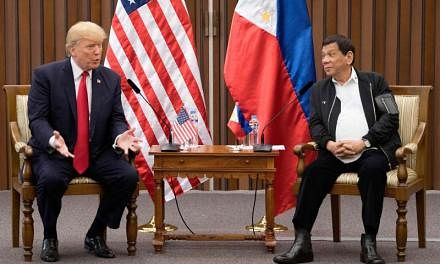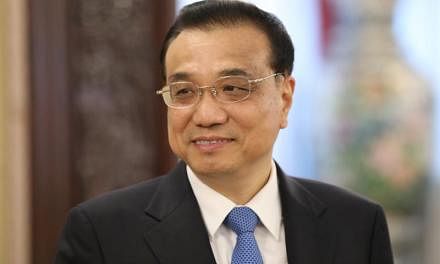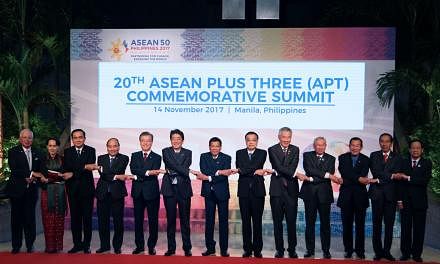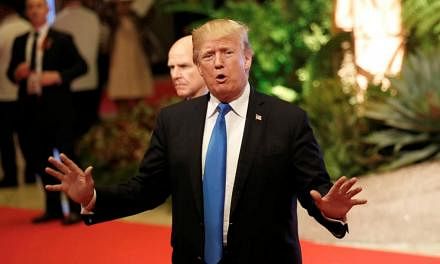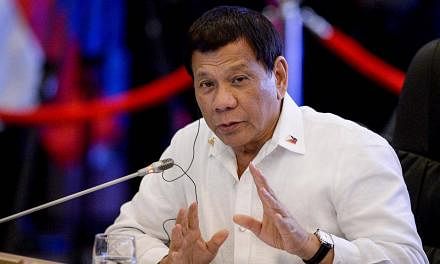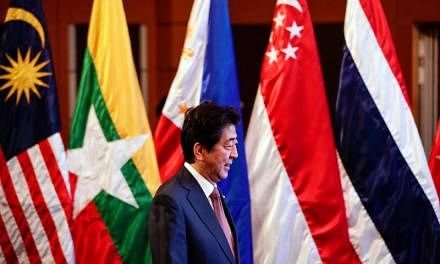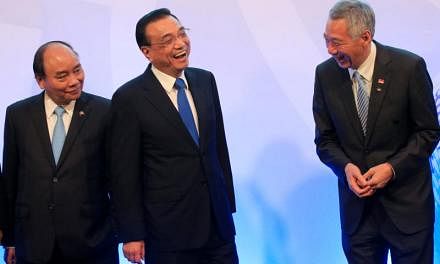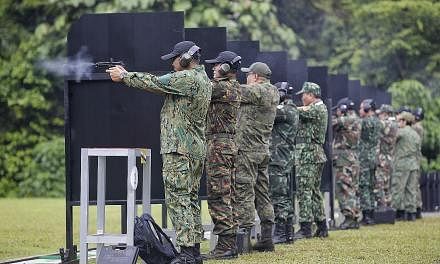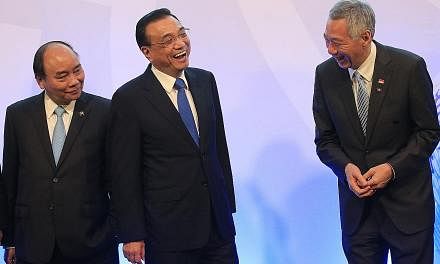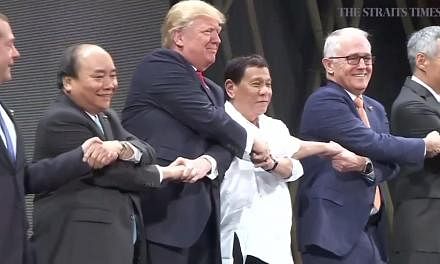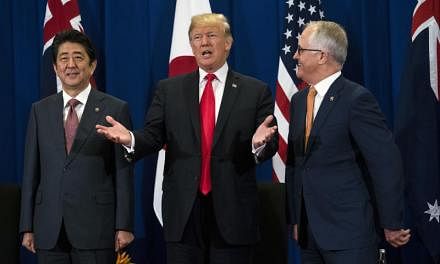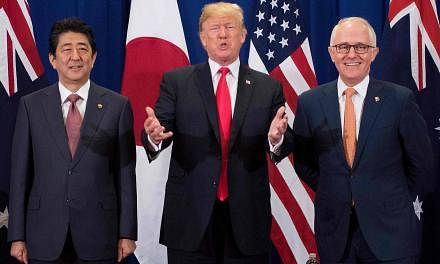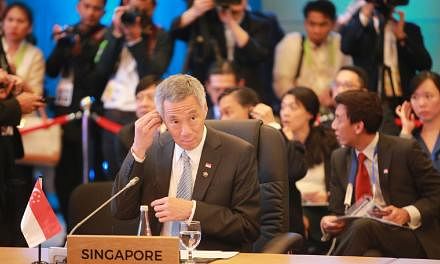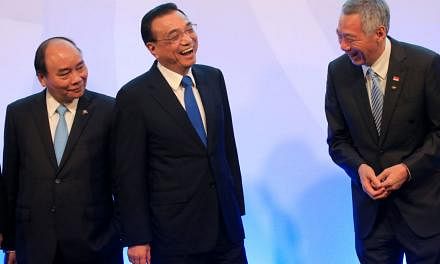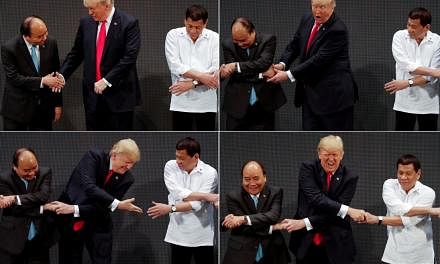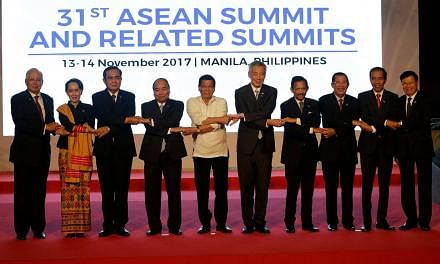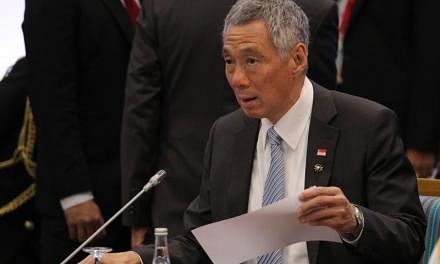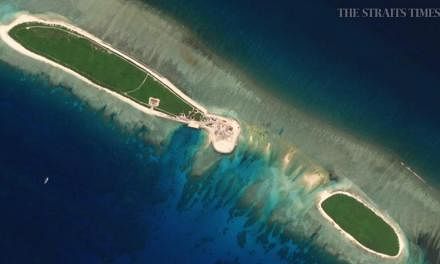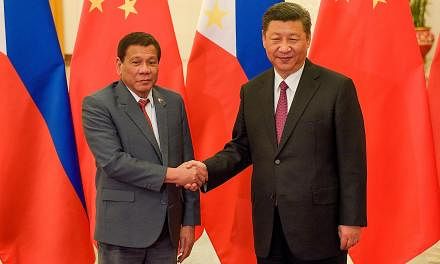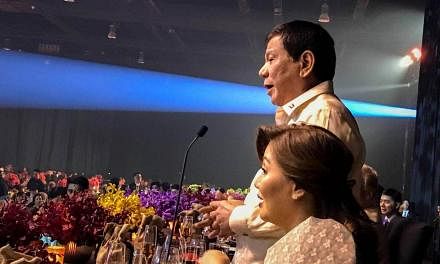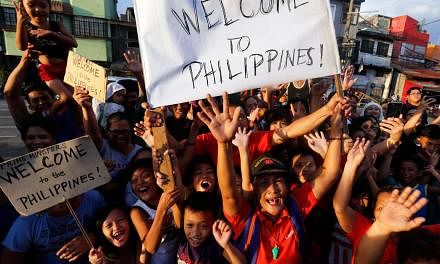MANILA - Asean must stay united and credible on issues of regional and international concern such as North Korea and the South China Sea, Prime Minister Lee Hsien Loong said on Monday (Nov 13).
Addressing fellow leaders of South-east Asian nations at the start of the 31st Asean Summit, PM Lee urged the grouping to continue to call on North Korea to abide by its international obligations and commitments.
"On the South China Sea issue, we welcome the calmer atmospherics and collective efforts by all parties to build mutual trust and confidence," he said at the plenary.
The prime minister also outlined what Singapore will focus on when it takes over the rotating chairmanship of Asean in 2018.
It will build on the good work by current chair the Philippines and previous chairs to strengthen the Asean Community, he said, and focus on stepping up cooperation to build resilience against threats like terrorism as well as non-traditional and emerging dangers.
It will also look to transform and integrate Asean's economies to take advantage of new technologies and the digital revolution, build an Asean community that is relevant and centres around its citizens, and continue to keep key partners engaged in the region.
Combating terrorism
The terrorist threat in Asean has increased sharply in recent years, and as terror group ISIS loses ground in Syria and Iraq, more fighters may return to South-east Asia, PM Lee noted.
He congratulated the Philippines for ending the siege in Marawi city, where ISIS has been trying to establish a caliphate.
He also urged countries to strengthen counter-terrorism cooperation, including timely exchanges of intelligence by law enforcement agencies.
And he welcomed leaders' public commitment to tackle terrorism, expressed in the Manila Declaration to Counter the Rise of Radicalisation and Violent Extremism that was adopted at the Asean ministerial meeting on transnational crime in September.
Other leaders also focused on the security threat, with Philippine President Rodrigo Duterte addressing terrorism head-on in his opening address to fellow leaders.
"Terrorism and violent extremism endanger the peace and security of the region because these threats know no boundaries," Mr Duterte said.
Working together on South China Sea
Singapore, the current country coordinator for Asean-China dialogue relations, also looks forward to deeper and more substantive cooperation between Asean and China on the South China Sea, PM Lee added.
Leaders will formally announce the start of negotiations on the code of conduct in the South China Sea at the Asean-China Summit on Monday afternoon. Asean members and China recently completed a framework for the code.
"It is also important to continue pursuing practical confidence-building measures among our armed forces to de-escalate tensions and minimise the risk of miscalculations," PM Lee said.
He urged countries to develop a set of common guidelines on how military vessels and aircraft should interact when they encounter each other unexpectedly in the South China Sea.
This involves building on a joint statement on the Application of the Code for Unplanned Encounters at Sea (CUES) in the South China Sea, which Asean and China issued in September 2016.
Keeping Asean prosperous
Apart from these pressing challenges, Asean needs to push on with its efforts in economic integration, "against the current climate of anti-globalisation and protectionism", in order to keep Asean competitive and prosperous, PM Lee said.
He noted that steady progress is being made towards building an Asean Economic Community, which could be the fourth largest single market in the world by 2030.
He called on members to stay committed to the multilateral, rules-based, and open trading system, and strive for high-quality pacts that benefit Asean's businesses and peoples.
He welcomed Asean's signing of free trade and investment agreements with Hong Kong on Sunday, and encouraged countries to continue working towards an agreement on the Regional Comprehensive Economic Partnership, a proposed 16-nation free trade agreement between Asean and six key partners: Australia, China, India, Japan, South Korea and New Zealand.
"As long as we stay united, resilient and adaptable, I am confident that Asean will continue to prosper and we will continue to forge a stronger community," he added.


